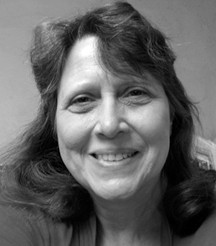Still Waters: The story of ‘Ann’

I’ll call her Ann.
Her story broke my heart and made me wish I was a millionaire and could fix at least some of her problems with money. But mostly what I could offer her was a listening ear.
She had moved from another state to Alamosa to be with someone she cared for and thought cared for her. They shared plans together, and the future looked hopeful.
Then, it seemed like one bad event occurred after another, and Ann wound up alone and in the homeless shelter. She had slipped on the floor at her fast food restaurant job and hurt her hand. She had to have surgery, and then she had to get a lawyer involved to fight for workman’s compensation, which she still has not received. (That was the original reason she called; she wanted me to write an exposé on her employer.)
Then she became the victim of domestic abuse. She was rescued from that situation, but she then had no permanent housing.
She was glad for the roof over her head at the homeless shelter, but it wasn’t like having a place of her own, a place where she could feel safe and have privacy and make her own choices in her own home. If she could only have a place like that, it would make all the difference, she said.
We made some calls to people and churches, but no one had a room or money to assist her in finding one. “Our money is used up for the year,” a person at one of the churches said. One gent who helps a lot of folks who are struggling said wearily when I called to see if he might know of a place where she could go, “her story is like hundreds of others.”
Ann had gone to all the right resources, applied at all the places she should apply to, but either she didn’t qualify or she had to wait, and she was at her wit’s end. She had no family to help her.
“I’m f—ing flipping out,” she said. “I’m f—ing flipping out.”
“I’m unbalanced,” she added.
“I can see that,” I replied.
I felt so helpless to make it all better, or even any of it better. I couldn’t make her employer pay the workman’s compensation. I couldn’t turn back time to stop her abuser from beating her. I couldn’t fix her hand, which was still healing and meant she could not go to work elsewhere yet. I couldn’t give her a house or money to rent one. I couldn’t even tell her it was all going to be all right someday.
She was clearly unbalanced, at wit’s end, but was an intelligent woman who had helped others in her career in the past, and she still clung to a sense of humor, perhaps the one thing that was keeping her from “losing it” altogether.
At one point she said, “You all get to go home to your warm houses and eat bonbons tonight.” It made me smile. Yes, I would get to go home to a warm house and a welcoming four-legged friend much later that evening. But I’m not sure what a bonbon is, or if I’ve ever eaten one. It was just a symbol of prosperity in her mind.
I’ve worked hard for my warm house, but I am still very grateful for it, and I know how thin the line can be between “making it” and not, both financially and emotionally.
In the end, I left her number with some folks and gave their number to her, and then I gave her a ride back to the shelter, because she did not even have a car or bike. She had walked all the way down from the shelter to the newspaper office to talk to me.
By then she was calmer, resigned to going back to her temporary home …
… and waiting.



